10 Stable Stocks to Buy Now for a Wobbly Market
The past several weeks have been frustrating for investors.


Profit and prosper with the best of Kiplinger's advice on investing, taxes, retirement, personal finance and much more. Delivered daily. Enter your email in the box and click Sign Me Up.
You are now subscribed
Your newsletter sign-up was successful
Want to add more newsletters?

Delivered daily
Kiplinger Today
Profit and prosper with the best of Kiplinger's advice on investing, taxes, retirement, personal finance and much more delivered daily. Smart money moves start here.

Sent five days a week
Kiplinger A Step Ahead
Get practical help to make better financial decisions in your everyday life, from spending to savings on top deals.

Delivered daily
Kiplinger Closing Bell
Get today's biggest financial and investing headlines delivered to your inbox every day the U.S. stock market is open.

Sent twice a week
Kiplinger Adviser Intel
Financial pros across the country share best practices and fresh tactics to preserve and grow your wealth.

Delivered weekly
Kiplinger Tax Tips
Trim your federal and state tax bills with practical tax-planning and tax-cutting strategies.

Sent twice a week
Kiplinger Retirement Tips
Your twice-a-week guide to planning and enjoying a financially secure and richly rewarding retirement

Sent bimonthly.
Kiplinger Adviser Angle
Insights for advisers, wealth managers and other financial professionals.

Sent twice a week
Kiplinger Investing Weekly
Your twice-a-week roundup of promising stocks, funds, companies and industries you should consider, ones you should avoid, and why.

Sent weekly for six weeks
Kiplinger Invest for Retirement
Your step-by-step six-part series on how to invest for retirement, from devising a successful strategy to exactly which investments to choose.
The past several weeks have been frustrating for investors. While an eight-day win streak for the Dow Jones Industrial Average showed we’re clearly not in the throes of a bear market, things largely still aren’t very bullish, either. We’re still in the midst of a garden-variety correction, and as many traders have been reminded, corrections are a process rather than a short-lived event.
The current process might not be completed just yet. Indeed, after an incredible unfettered runup over the course of 2017, it could be weeks before the market finds a true floor and is able to rekindle its former bullishness.
That doesn’t necessarily mean investors must simply ride it out with what they have. The right stocks can minimize market volatility, and maybe even drive gains at a time of year that’s lethargic, at best.
Here are 10 stocks to buy now for their resiliency, dependability and stability. Some are perennial winners, others are counter-cyclical plays and still others are special-situation opportunities. In all cases, however, these shares look relatively immune to the broad market’s uncertainty.
Data is as of May 14, 2018. Click on ticker-symbol links in each slide for current share prices and more.
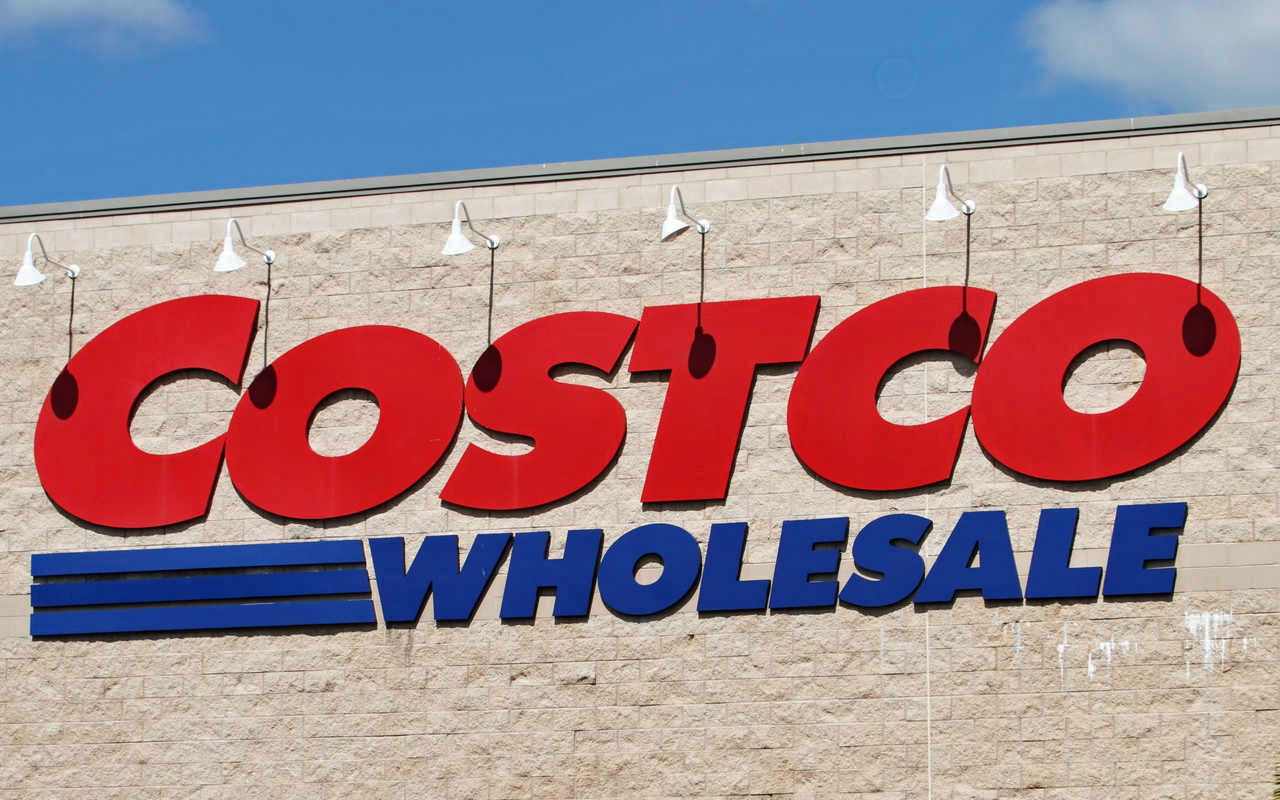
Costco Wholesale
- Market value: $86.0 billion
Think Costco Wholesale (COST, $195.88) is just another retailer? Think again. Although it clearly operates brick and mortar stores that invite consumers in for a shopping experience, that description doesn’t do Costco’s business model justice. This retailer was built from the ground up to also be a fee-based membership club, annually charging its customers for the privilege of spending money at its locales.
It has worked. In its most recently reported quarter, membership fees accounted for $716 million in revenue, which accounted for the vast majority of the company’s $986 million in pretax income; membership fee revenue is almost all profit.
Costco isn’t just a machine designed to drive membership fees. It has proverbial “buy-in” from consumers, and shoppers feel more compelled to get the most of their membership by frequenting the company’s stores more than they might otherwise. The average per-trip ticket size is much bigger at Costco than at any other comparable retailer, and on average, members spend about $2,500 per year with the company. For comparison, the average Amazon (AMZN) Prime member only spends about $1,300 at the e-commerce site per year. The fact that Costco mostly sells consumables bolsters the stability argument.
Investors appreciate this kind of reliable revenue production when other companies face unclear futures.

Hormel Foods
- Market value: $19.0 billion
Market turbulence might prompt consumers to rethink that splurge, and outright bear markets may postpone the purchase of an automobile. It’s rather uncommon for anyone to stop eating regardless of the economic environment, however.
That leaves packaged-food company Hormel Foods (HRL, $36.08) in an enviable position.
Hormel is the company that brings you Dinty Moore beef stew, Skippy peanut butter, Spam and a handful of canned goods with the Hormel label on them. You’ll find them in store refrigerators, on unrefrigerated shelves and even in places that use Jennie-O foodservice. Even within the anti-cyclical consumer goods sector, diversification counts.
That geographic diversification rattled some shareholders just a few weeks ago, when the threat of new tariffs being imposed on foods sent from the United States to China first surfaced. Although Chinese President Xi Jinping has since backed off on those threats, the possibility lingers in the back of investors’ minds.
But it might not need to. Hormel has what many other players in the business don’t have: scale. Although the company’s sales and profits ebb and flow like any other, the market knows full well that far more often than not, Hormel’s revenues and earnings roll in higher on a year-over-year basis. That easily makes it one of the top stocks to buy now for stability.
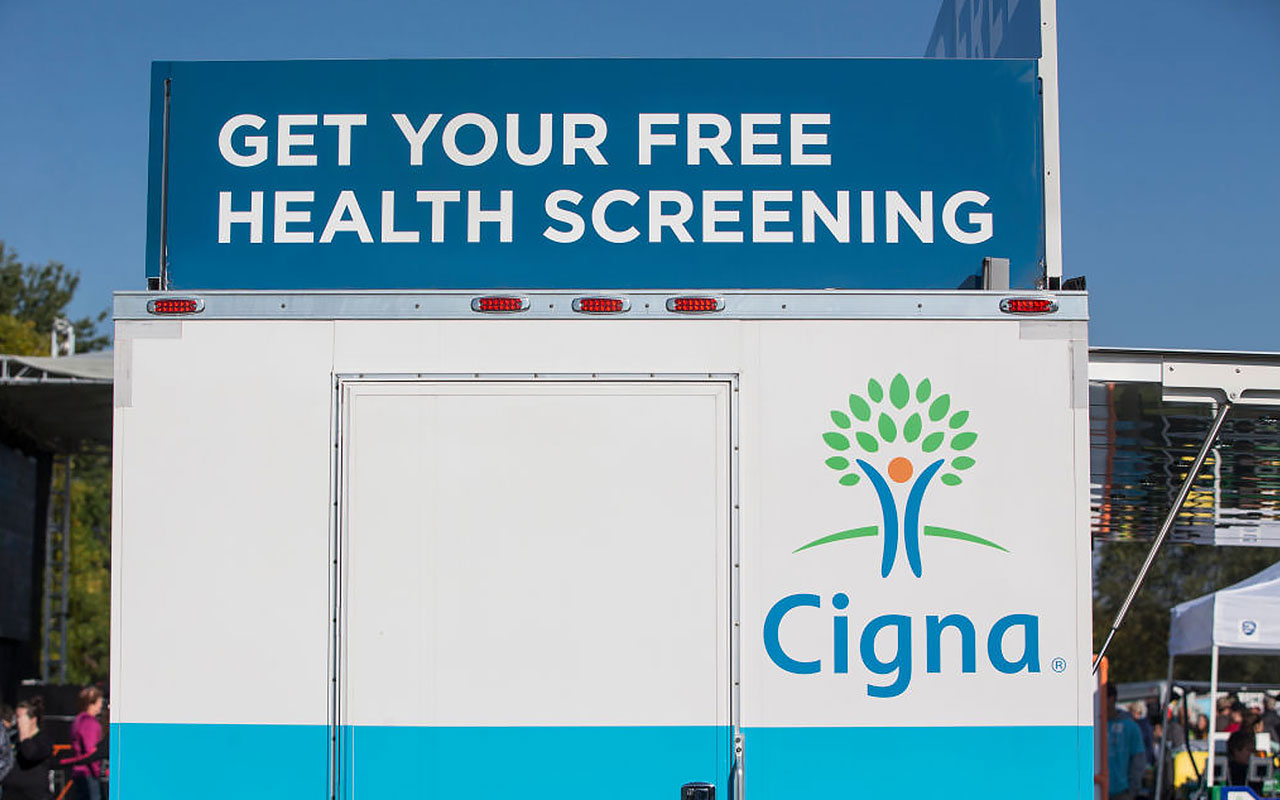
Cigna
- Market value: $42.8 billion
Healthcare plan providers like Cigna (CI, $177.54) were certainly whipped around before and after the advent of the Affordable Care Act, better known as Obamacare. Its implosion in the meantime has only fanned the flames of volatility, with investors simply unsure of what the future held.
But there’s more clarity on the horizon than these healthcare-focused blue-chip stocks (as a group) may be getting credit for.
That growing stability is at least in part supported by the new normal in the healthcare arena – vertical integrations that will ultimately lead to cost savings. The union of drugstore chain CVS Health (CVS) and Aetna (AET) comes to mind. But Cigna is getting in on the act too with its effort to acquire pharmacy benefits manage Express Scripts (ESRX). Such deals are expected to provide consistency at the stage of drug reimbursement, which had previously been a point of friction within the healthcare sector.
Investors are already pricing in that impending stability too. Cigna shares’ beta score, which compares its volatility to the broad market’s volatility, says it only swings about half as erratically as the Standard & Poor’s 500-stock index does. But it has handily outperformed the S&P 500 over the course of the past five years with a gain of 134%. The market’s only up about 67% for the timeframe.
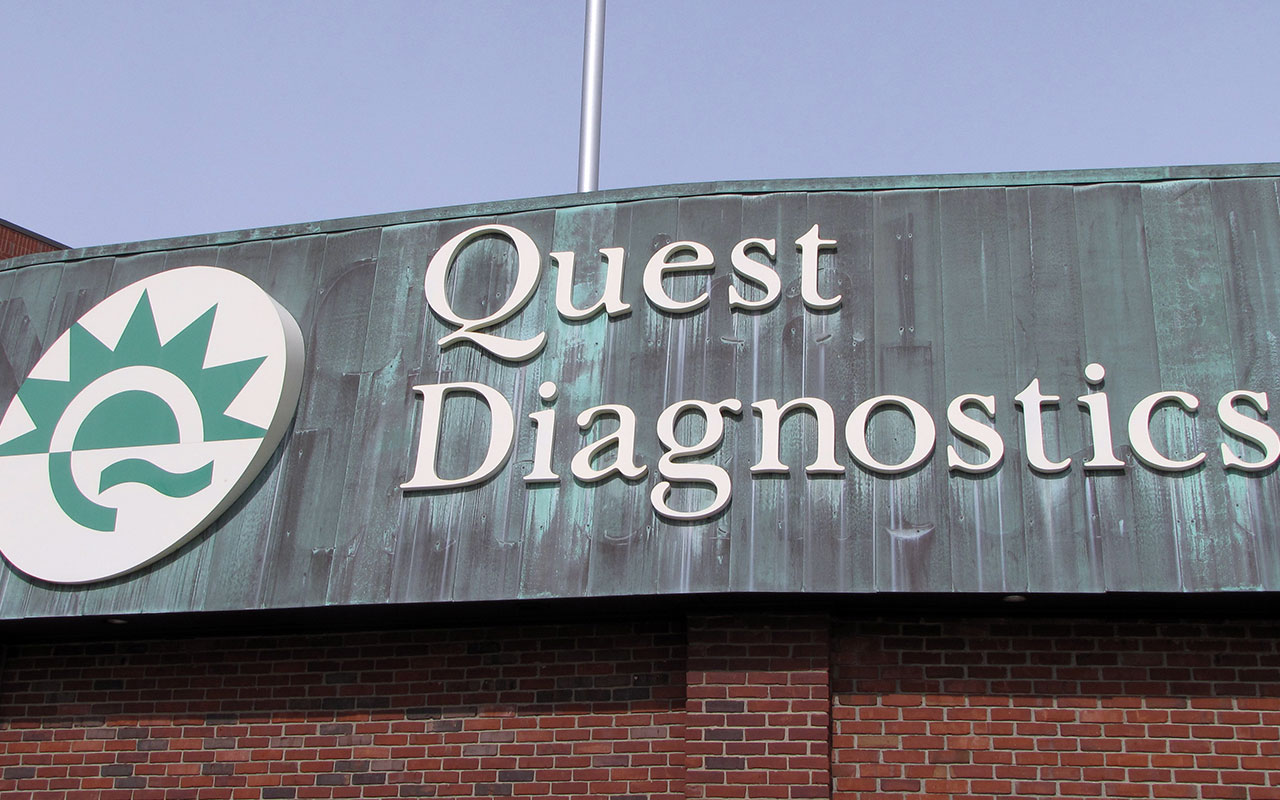
Quest Diagnostics
- Market value: $13.9 billion
In the same sense that food sales are resilient, so too is the use of diagnostic kits and the utilization of the laboratories that process them.
Enter Quest Diagnostics (DGX, $102.93), the world’s largest medical diagnostics and testing company. Quest can identify and analyze everything from cancer to cholesterol to hepatitis C and more. This includes employment-driven drug-testing, which may translate into a particularly strong opportunity for the foreseeable future.
With the nation’s unemployment rate now at a multi-year low of 3.9% and employers now fighting for – and possibly lowering their standards for – workers, Quest Diagnostics has observed something more than a little concerning. That is, positive drug tests (evidence that workers are drug users) are at a 10-year high. Though organizations are desperate for workers, no employer can afford the liability of an employee that may be under the influence while on the job. Look for demand for drug screening to ramp-up, in step with the fast-growing job market.
Regardless, as was noted, disease diagnostics and drug-testing are the kind of services that aren’t overly subject to economically-based changes in the marketplace. While its top and bottom lines have fluctuated in the short run over the course of the past decade, the longer-term trajectory has been pointed decidedly upward.
This kind of reliability makes DGX a favorite in turbulent times.

Diageo plc
- Market value: $89.0 billion
It’s cliché, but clichés exist for a reason: Own booze company Diageo plc (DEO, $144.49) as a way of sidestepping the brunt of any pullback. The industry – and this company in particular – almost seems to thrive when most other equities are floundering, with alcohol making tough times a little easier to cope with.
You may know the company better than you realize. Although it is based in the U.K., Diageo is the name behind iconic American brands like Johnnie Walker, Smirnoff and Captain Morgan, just to name a few. While popular in the United States, Diageo products are enjoyed in more than 180 countries, offering incredible geographic diversity to shareholders. It also offers owners oddly reliable, even if never red-hot, earnings and sales growth.
The big selling point with Diageo, however, is its highly tempered volatility. With a beta reading of only 0.55, it’s only a little more than half as erratic as the S&P 500 index. That low beta reading also suggests it also sometimes moves counter to the overall market tide.
More than anything, however, the low beta reading says DEO shares march to the beat of their own drum, reflecting the company’s steady growth.
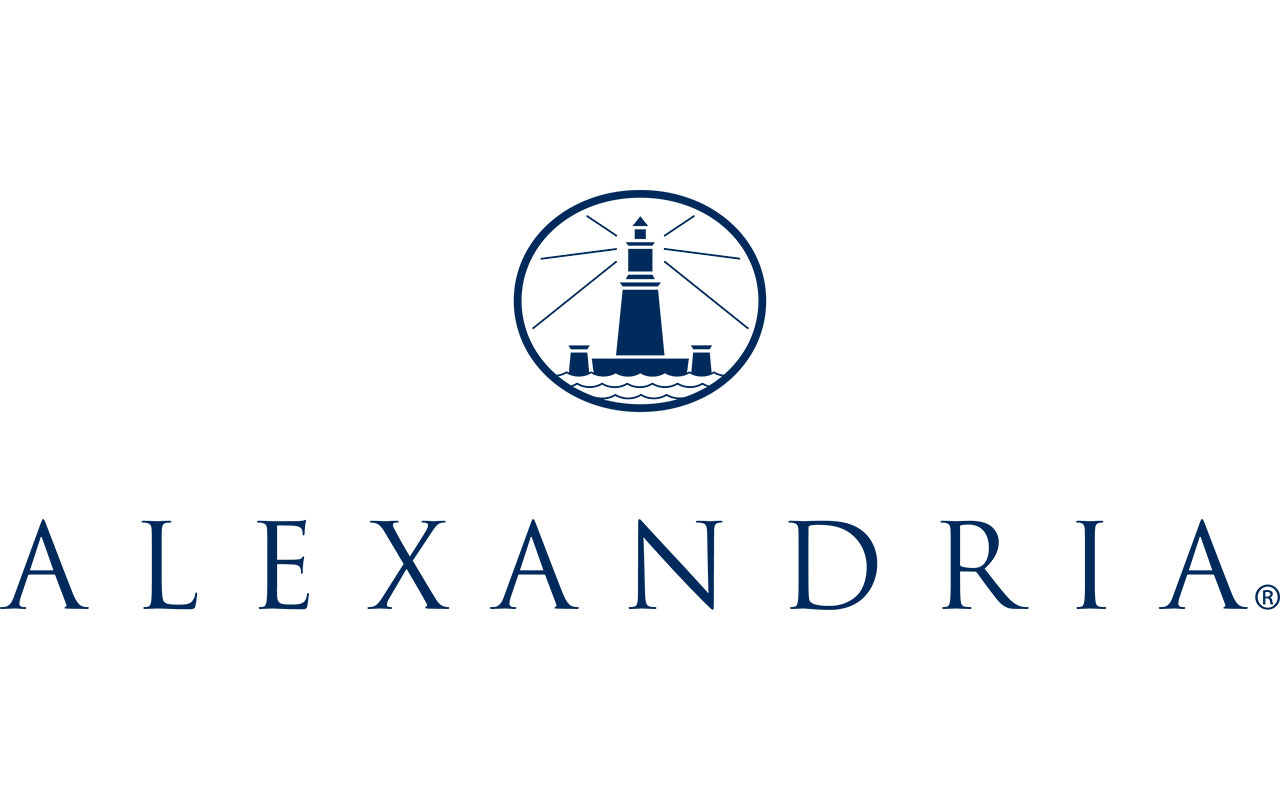
Alexandria Real Estate Equities
- Market value: $12.8 billion
When stocks as a whole start to struggle, investors are often quick to seek out other kinds of assets … commodities, bonds, and real estate. That’s why Jonathan Pappas, communications consultant for real estate PR firm Solomon McCown, thinks real estate investment trust (REIT) Alexandria Real Estate Equities (ARE, $126.98) could be a compelling alternative in the midst of this market turbulence.
Pappas explains, “After last week’s Q1-2018 Alexandria earnings call, investors and analysts for the first time in Alexandria’s 24-year history heard Joel and leadership give increased visibility into their development/redevelopment pipeline for 2018-2019-2020. This news sent Alexandria’s stock up 4% on May 1.”
He adds, “Another reason why the Street was excited about Alexandria’s long-term growth was because these Class A lab/office buildings currently under construction or pre-construction are already more than 80% pre-leased, on average – guaranteed cash flow over the next several years.”
That impending cash flow makes ARE a lower-risk bet than many other equities, and REITs, when the overall market is being shaken and stirred.
The kicker: Alexandria’s first-quarter top and bottom lines were both better than analysts were expecting. Revenues were up a healthy 18%, year-over-year, adding to the bullish response to the company’s new forward-looking transparency.

American Water Works
- Market value: $14.4 billion
- American Water Works (AWK, $82.67) is, to put it bluntly, a boring company. That’s meant as a compliment, though. Boring is beautiful if the alternative is an exciting but unpredictable future.
Exactly as the name says, American Water Works operates water utility services, delivering water to 1,600 communities spread across 16 different states. What’s not put in print at the corporate website is that water utilities are about as much of a monopoly as an industry can get and still be permitted to operate. While competition theoretically is permitted, for all intents and purposes it’s simply too difficult for a community to tap another operator.
It gets better. It wouldn’t be accurate to say it never happens, but it is rare for a municipality’s regulatory body to deny a water company’s request for a rate increase. Circle of Blue, which monitors the nation’s average monthly water bill paid by consumers, reports that the monthly cost of water has steadily grown every year since 2010, and by more than the broad inflation rate has.
AWK shareholders aren’t complaining. American Water Works’ dividend yield of 2% isn’t much to celebrate, but shareholders know it’s among the best stocks to buy for dividend growth as well as safety. In 2010, AWK paid 63 cents per share. Now, it’s paying out at an annualized pace of $1.67 per share.
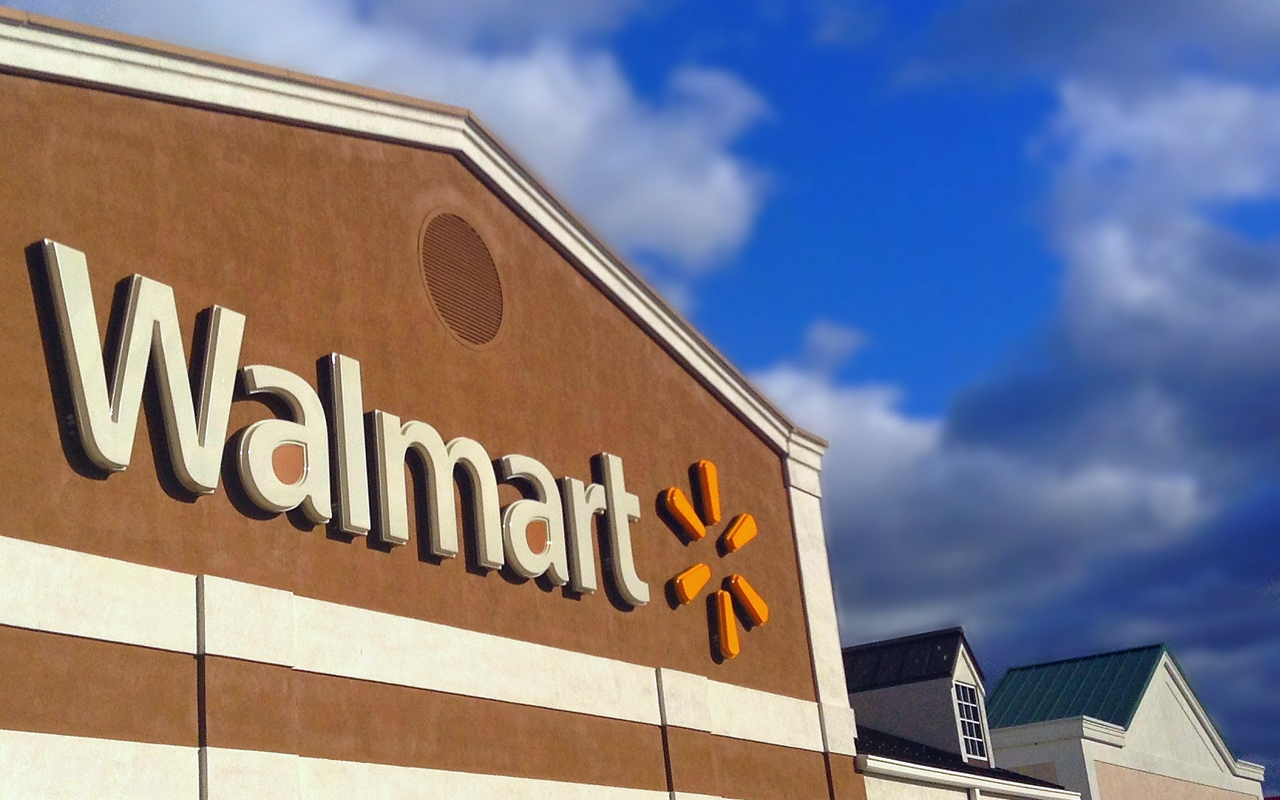
Walmart
- Market value: $249.0 billion
Given its ongoing fight with Amazon, Target (TGT) and the aforementioned Costco – just to name a few -- one would expect Walmart (WMT, $84.39) shares to make their way all of the trading map, higher and lower. And to be fair, the company sees its fair share of erraticism. By and large, though, shares of the world’s biggest retailer are less than half as erratic as the S&P 500 has been over the course of the past year.
It’s not terribly tough to figure out why. Its inherent problems aside, Walmart is a massive company with a finger in a lot of different pies ranging from groceries to automotive to several surprising high-end online ventures, all augmenting (of course) its core general merchandise operation. The sheer size of the company makes it a difficult outfit to push, pull or turn.
The retailer’s stability goes beyond internal diversity. Its core product lines like home goods, kitchen supplies, hardware and electronics may not me outright recession-proof, but they’re quite recession-resistant. Consumers may not always be able to purchase a new car, but they won’t think twice about buying new socks or light bulbs.
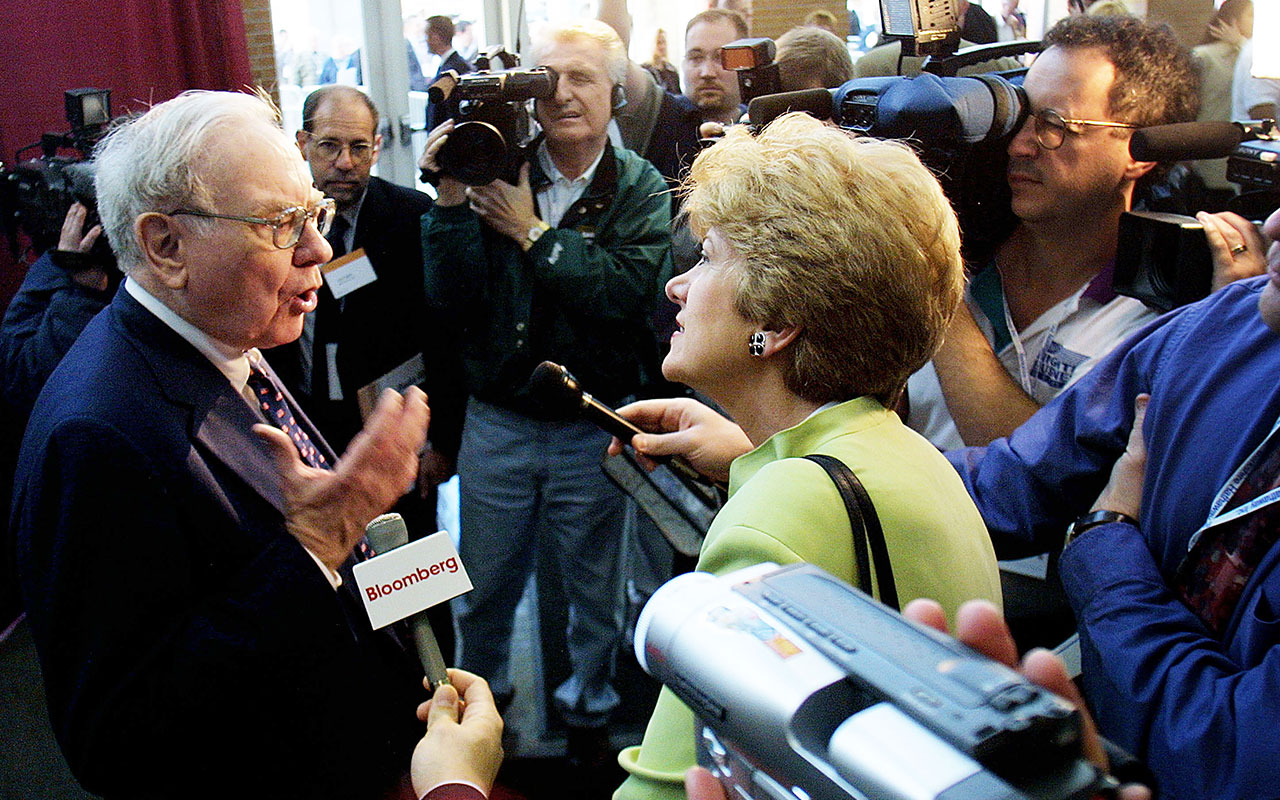
Berkshire Hathaway
- Market value: $485.3 billion
It might be cheating just a bit for an investor to delegate his or her stock-picking duties to someone else. But, if you’re going to go that route, Warren Buffett’s Berkshire Hathaway (BRK.B, $199.18) is undoubtedly the way to go.
The short version of the long story is, Buffett likes value stocks. He’s also a fan of companies that can consistently create cash flow, and given his historical preferences, the Oracle of Omaha has generally bought stocks that are inherently less volatile than the broad market – attributes that only took the world of academia five decades to officially figure out, even though Buffett has been willing to drop such hints for about as long.
There may be another reason Berkshire Hathaway isn’t quite as erratic as the S&P 500. That is, though the fund holds a great number of publicly traded stocks, it also owns a great number of privately held businesses that can only be arbitrarily (and only occasionally) valued by accountants. Since those have no underlying stocks to speak of that create any meaningful measure of net asset value, the market tacitly acknowledges Berkshire must be valued only by its ability to create income.
Ergo, Berkshire Hathaway shares aren’t pushed around by hysteria like most other equities are.
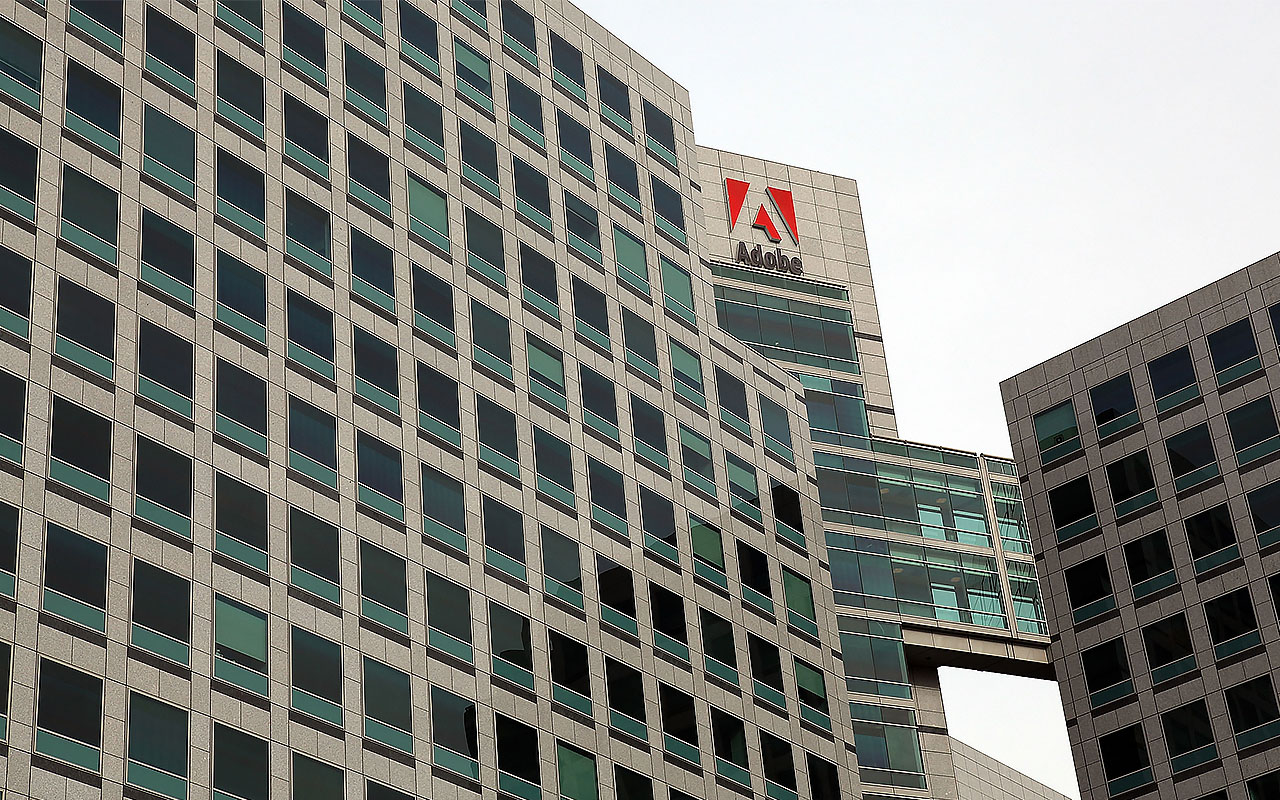
Adobe Systems
- Market value: $115.9 billion
Add Adobe Systems (ADBE, $238.37) to your list of stocks to buy now that have a better-than-average shot at performing well even if the broad market doesn’t.
Yes, this is the same Adobe behind software like Adobe Acrobat and Photoshop. Not only are they still around and relevant, the company has breathed new life into them by (1) improving them in a way that makes them superior to often-free alternatives, and (2) renting cloud-based access to them for just a few bucks a month per user, setting the stage for an impressive degree of recurring revenue. As of its most recent reported quarter, the company was driving recurring revenue at an annualized pace of $5.7 billion, which is more than half of the $8.9 billion in sales it’s expected to generate in 2018.
CFA James Stefurak, founder of California-based Monarch Financial Research, explains “despite share price outperformance, Adobe's 0.76 beta demonstrates a less-volatile demeanor during sell-offs.” Stefurak goes on to explain, though, that “Adobe's no-dividend policy could be viewed favorably as investors shun interest rate-sensitive names.”
That last nuance solves a lot of interest rate problems many investors now face in this environment of rising interest rates.
Profit and prosper with the best of Kiplinger's advice on investing, taxes, retirement, personal finance and much more. Delivered daily. Enter your email in the box and click Sign Me Up.

-
 Dow Leads in Mixed Session on Amgen Earnings: Stock Market Today
Dow Leads in Mixed Session on Amgen Earnings: Stock Market TodayThe rest of Wall Street struggled as Advanced Micro Devices earnings caused a chip-stock sell-off.
-
 How to Watch the 2026 Winter Olympics Without Overpaying
How to Watch the 2026 Winter Olympics Without OverpayingHere’s how to stream the 2026 Winter Olympics live, including low-cost viewing options, Peacock access and ways to catch your favorite athletes and events from anywhere.
-
 Here’s How to Stream the Super Bowl for Less
Here’s How to Stream the Super Bowl for LessWe'll show you the least expensive ways to stream football's biggest event.
-
 AI Stocks Lead Nasdaq's 398-Point Nosedive: Stock Market Today
AI Stocks Lead Nasdaq's 398-Point Nosedive: Stock Market TodayThe major stock market indexes do not yet reflect the bullish tendencies of sector rotation and broadening participation.
-
 Nasdaq Rises 2.7% as Musk Tweets TSLA Higher: Stock Market Today
Nasdaq Rises 2.7% as Musk Tweets TSLA Higher: Stock Market TodayMarkets follow through on Friday's reversal rally with even bigger moves on Monday.
-
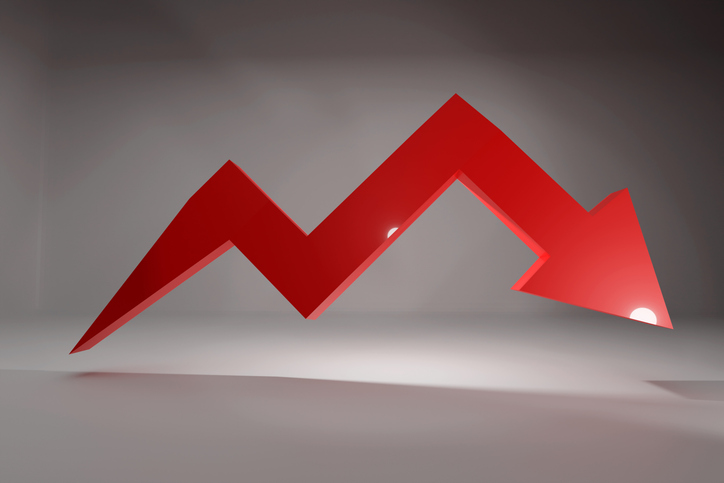 Dow Erases 717-Point Gain to End Lower: Stock Market Today
Dow Erases 717-Point Gain to End Lower: Stock Market TodayThe main indexes started the day with solid gains, but worries of an AI bubble weighed on stocks into the close.
-
 Coulda, Woulda, Shoulda: Are These 5 Stocks Too Overvalued to Buy Now?
Coulda, Woulda, Shoulda: Are These 5 Stocks Too Overvalued to Buy Now?Investors worried about missing the boat on overvalued stocks need not fret. These five names, while expensive, are still seeing lots of love from analysts.
-
 S&P 500 Extends Losing Streak Ahead of Powell Speech: Stock Market Today
S&P 500 Extends Losing Streak Ahead of Powell Speech: Stock Market TodayStocks continued to struggle ahead of Fed Chair Powell's Friday morning speech at Jackson Hole.
-
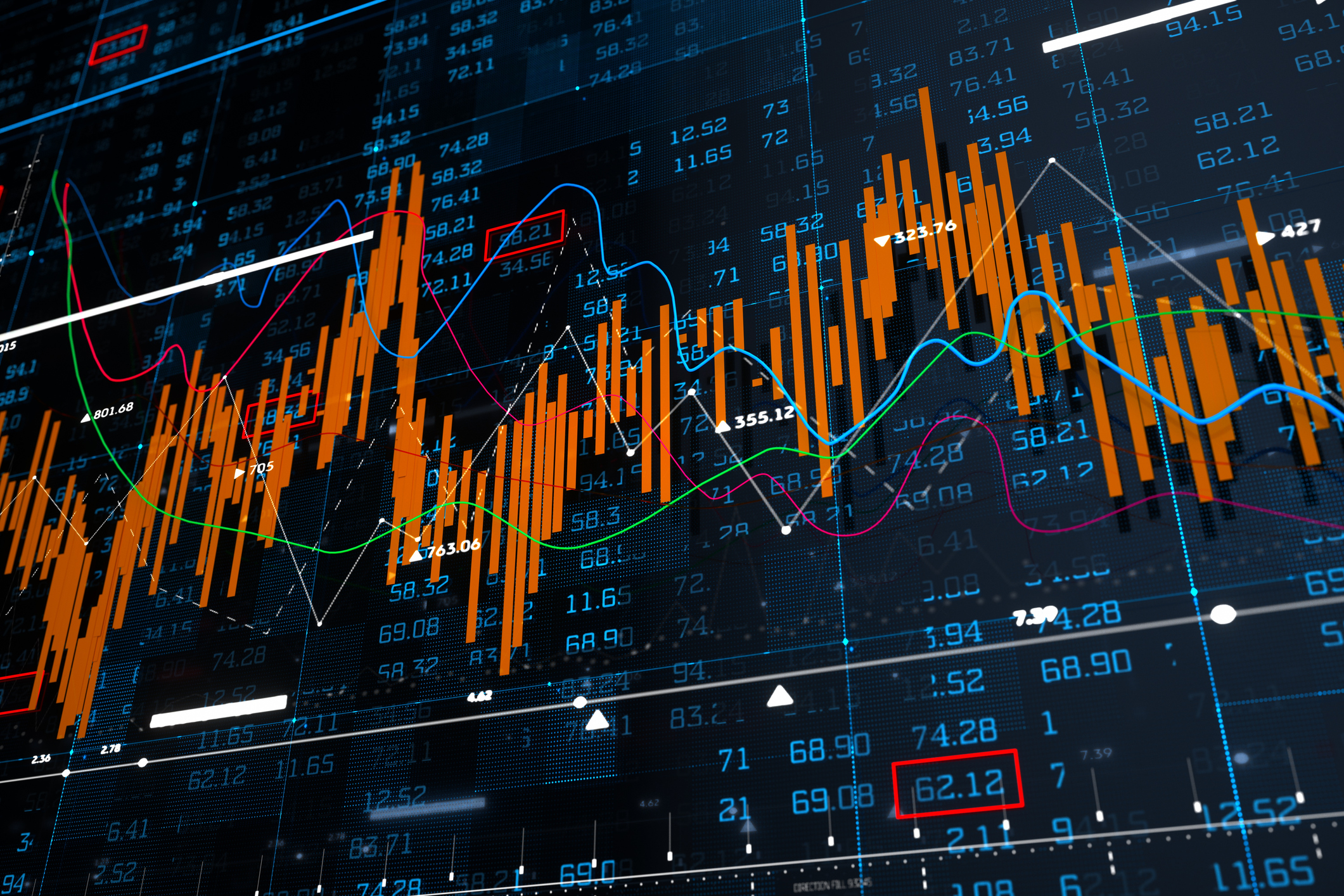 Stocks Struggle Ahead of Busy Fed Week: Stock Market Today
Stocks Struggle Ahead of Busy Fed Week: Stock Market TodayThe minutes from the July Fed meeting will be released Wednesday, while Chair Powell will deliver a key speech at Jackson Hole on Friday.
-
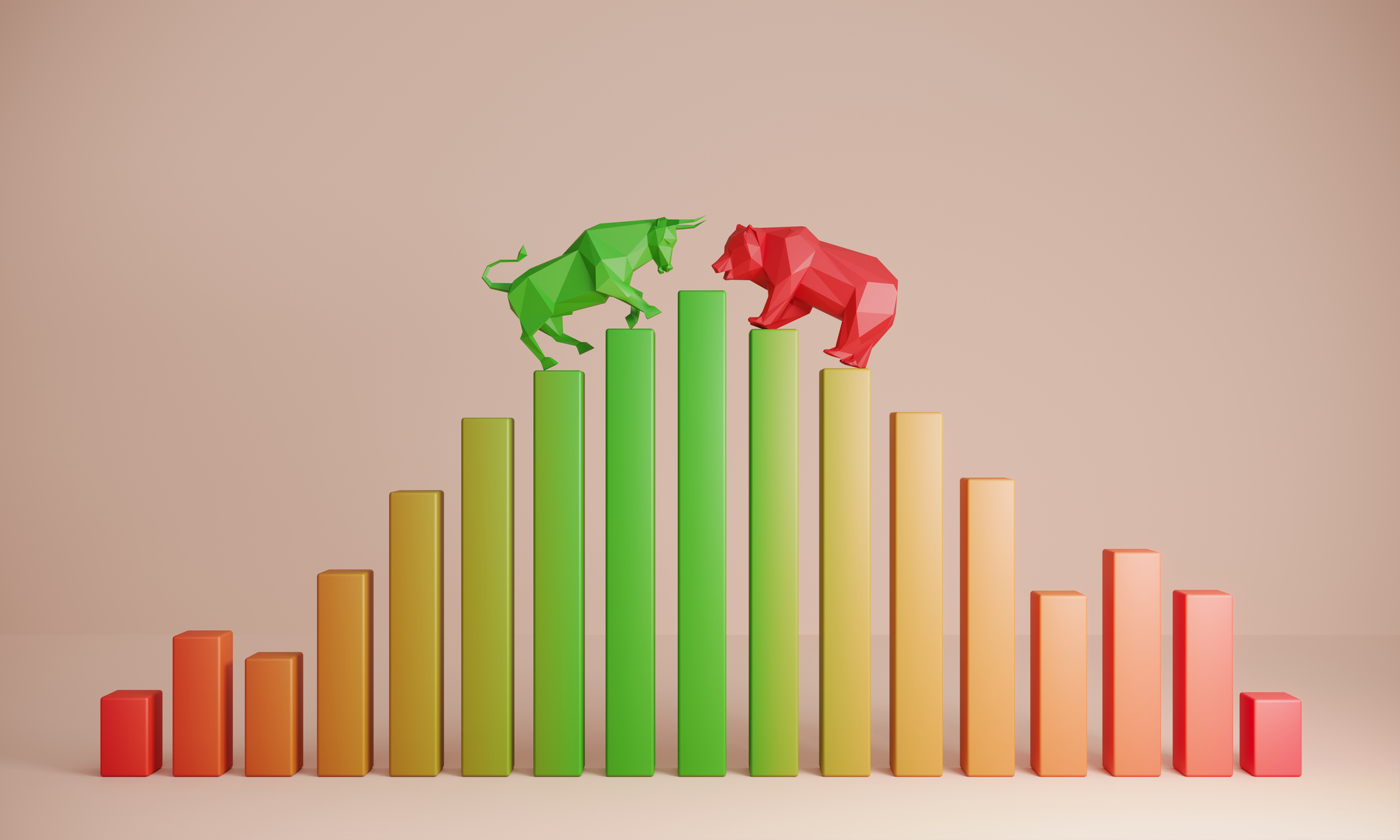 Dow Hits New Intraday High: Stock Market Today
Dow Hits New Intraday High: Stock Market TodayValue-hunters with big stakes in a particular component kept one of the main U.S. equity indexes in positive territory.
-
 We Are Peter Lynch: How to Invest in What You Know
We Are Peter Lynch: How to Invest in What You KnowTake a look around, go to a free stock market data website, and get to work.
